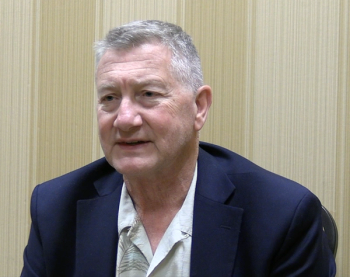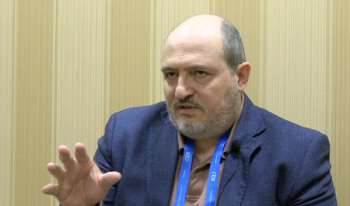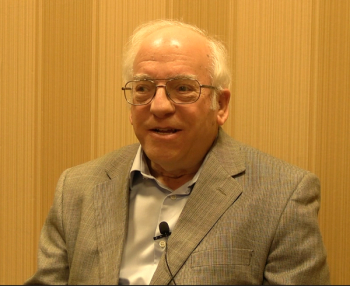
Wolfgang Petrich Receives Coblentz Society Williams-Wright Award
The Coblentz Society Williams-Wright Award was presented to Wolfgang Petrich of Roche Diabetes Care GmbH and Heidelberg University, on March 19, at Pittcon 2019, in Philadelphia, Pennsylvania.
The Coblentz Society Williams-Wright Award was presented to Wolfgang Petrich of Roche Diabetes Care GmbH and Heidelberg University, on March 19, at Pittcon 2019, in Philadelphia, Pennsylvania. The award is presented annually to an industrial spectroscopist who has made significant contributions to vibrational spectroscopy while working in industry. This year, the award recognizes Petrich for his work in the development and application of biomedical applications of infrared-based clinical laboratory instrumentation in the fields of metabolism, rheumatology, cardiology, and veterinary medicine as well as pioneering applications of quantum cascade laser technology to biology and medicine.
Petrich, who studied physics at the Heidelberg University in Germany and at the ETH Zurich, in Switzerland, received his PhD from the Max Planck Institute for Nuclear Physics (Heidelberg, Germany) for research in atomic physics and quantum optics. He joined the medical diagnostics industry in 1996 and made substantial contributions to applied biomedical optics, principally infrared, Raman, and fluorescence spectroscopy. In his spare time, he is a researcher and lecturer at Heidelberg University, where he is pioneering the application of quantum cascade lasers in biology and medicine.
Following the presentation of the award, Petrich gave a talk on biomedical vibrational spectroscopy that provided an overview of recent advances and achievements.
Petrich is the author and co-author of many publications and patents. He has served as an organizer of biophotonics conferences such as SPEC 2006 and SPIE’s biannual conference on biomedical vibrational spectroscopy at Photonics West.
Newsletter
Get essential updates on the latest spectroscopy technologies, regulatory standards, and best practices—subscribe today to Spectroscopy.




